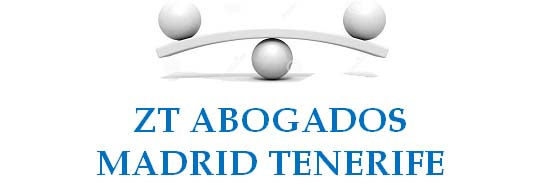LEGAL PERSONS AS CONSUMERS AND USERS
The term "consumer" has a simple meaning and, in theory easy to understand. We say in theory because the issue has been much talk in terms of European, State and Autonomous legislation. In principle, "consumer" is any person who acts in hiring outside his trade, business or profession. Thus far it is understandable: an entrepreneur or professional can get credit for his company, in whose case he would be acting as a consumer, but can also contract a loan for his own consume or to give destination different to his activity, in whose case it would be clear the consumer trading.
The EU Regulation and Directive concerning consumers mentioned by the European Court are basically two: Directive 93/13/ EEC and Directive 2005/29 of the European Parliament and Council of 11 May 2005. We could say consumer is "any natural person who, in contracts covered by this Directive, is acting for purposes outside his trade or profession". As we can see, both refer to an individual, leaving aside the legal entities and accepting that the companies may or may be not consumer or user, depending on the cases.
NATURAL PERSON AS CONSUMER
In with this, the European Court Judgment of September 3, 2015, ruled in the case of a professional (lawyer) who acted outside of their professional activity. Although this is a natural person, the important thing is that he is acting outside his professional activity. The case relates to an individual who practices law and contracts a loan with a bank without specifying its destination, it must be considered to determine if he is consumer regarding Directive 93/13. This Directive "defends" the consumer as long as he is in an inferior position with regard to the professional (bank) so in these consumer contracts "sticks" to the predisposed clauses written in advance, without being able to modify them. The European Court considers that in the case of a lawyer who contracts with a bank without referring in particular to the activity of the firm, even having a high level of technical competence, it does not imply that it is not a weak party on the contract. And the fact that he mortgaged an asset owned by his office (connected to professional activity), is irrelevant for this purpose (because the main problem relates to the determination as consumer or not consumer within the main loan agreement and not in the accessory guarantee, such as the mortgage).
LEGAL PERSON AS CONSUMER
In this case, from the point of view of European Law, it seems inferred that a legal person can not act as a consumer. However , Spanish law considers it as consumer both in State and Autonomic Laws.
The 1978 Constitution in Article 51 says: "The public authorities shall guarantee the protection of consumers and users, protecting , through effective procedures, safety, health and legitimate economic interests of the same". As we see, it makes no distinction and declares its protection.
Regarding State legislation, Royal Decree 1/2007 of 16 November, by which is approved the revised text of the General Law for the Defence of Consumers and Users and other complementary laws, in Articles 3 and 4 (amended by Law 3/2014 of 27 March) says:
<< Article 3 General Concept of consumer and user: For the purposes of this law and subject to express provisions in the third and fourth books, consumers or users are natural persons acting for purposes outside his trade, business or profession. They are also consumers for the purposes of this law, legal persons and entities without legal nonprofitable personality acting in a field different to its trade or business.>> .
<< Article 4 Concept of employer: For the purposes of the provisions of this law, an entrepreneur is any natural or legal person, either private or public, acting directly or through another person on their behalf or following their directives, for purposes related to their trade, business or profession.>> .
After reform of March 2014, the Royal Legislative Decree 1/2007 states what should be understood by consumers and users and the meaning of employer. Which brings us to an exemplification of the question, not based on whether we are facing a natural or legal person, but based on the scope of the person, considering that not all goods purchased by the legal entity must be considered bought for its business or professional activity.
For instance, I can mention the case of a professional limited company that acquired a living house for the sole shareholder, as family home, through a mortgage loan. Whether for whatever reason, the company turned out to be the owner but the fate of acquired property was not meant to be incorporated in the production process of the company, either directly or indirectly, but the fate was housing of the sole shareholder (where he was not practising his profession). This issue is important because the mortgage loan granted to acquire the property contained a “floor clause” and the borrower ask for nullification of such clause, to which the bank replied that it did not agree with such an annulment because the loan was granted in favour of a legal person who was not a consumer. The complaint continues and there is no final decision yet, and presumably he will have to go to court. In this respect, High Court of Huelva considered extended to legal entities the consequences of the judgment of the Supreme Court of May 9, 2013 that considered null and void floor clauses in cases of corporations acting to finance their business although their business have another social object (Judgment of High Court of Huelva of 21 March 2014).
Therefore, according to Spanish law, a legal person may be considered consumer or user, because what matters is not the legal personality of the purchaser but the destination or the use that will be given to goods purchased.
CONSUMERS WITHIN AUTONOMIC LEGISLATION
We mention Madrid and Canary Islands legislation:
In the first case, we have Law 11/1998 of 9 July, of Protection of Consumers of Madrid Autonomous Community:
<< Article 2. Concept of consumer: 1. For the purposes of this Act, consumers are natural or legal persons who acquire, use or enjoy as final recipients, real or personal property, goods, services, activities or functions, whatever collective public or private, individually or entities, companies or professionals, collegiate or not, that produce, facilitate, provide or issue them. There shall not be deemed to consumers who acquire, store, use or consume goods or services in order to integrate them into processes of production, processing, marketing or provision to third parties, even if the integration does not involve a direct benefit. >> .
In the second case, Law 3/2003 of 12 February, of Statute of Consumers and Users of Canary Island Autonomous Community:
<< Article 2. Concept of consumer and user. For the purposes of this Act, the term consumer or user any natural or legal person to whom goods, products and services are offered, or acquires, uses or enjoys as final recipient, to use them for personal, family or collective consumption provided that whoever offers them holds the position of entrepreneur or professional, irrespective of their public or private nature. They will not be considered as consumers and users the ones who, without becoming final recipients, acquire, use or enjoy goods, products and services within the scope of a business or professional activity.>>.











